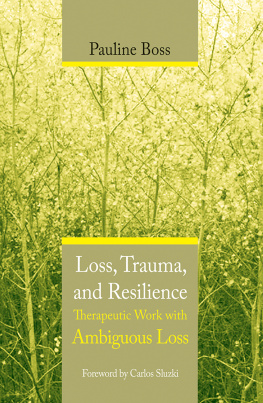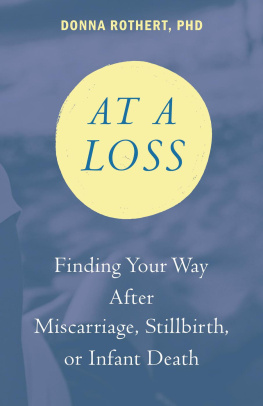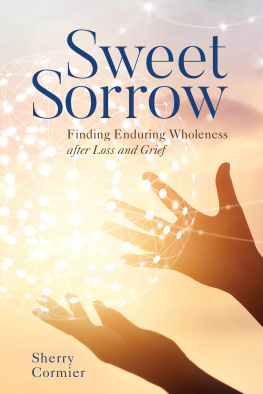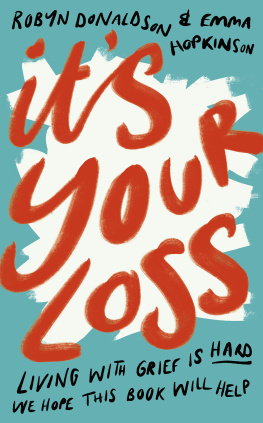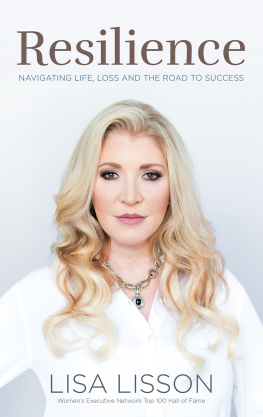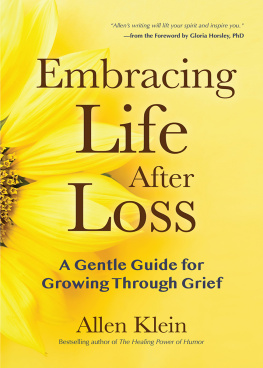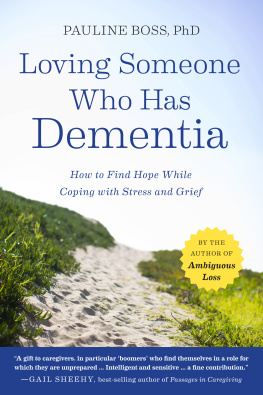
More Advance Acclaim for
Loss, Trauma, and Resilience
Therapeutic Work with Ambiguous Loss
Pauline Boss has written a comprehensive guide to understanding and healing one of the most painful of human experiences. In clear, accessible prose, she links together a wide range of theories, practices, and vivid cultural references. Sure to become a classic that will be widely read by those whove suffered ambiguous loss as well as those attempting to provide a therapeutic pathway that transforms suffering into newfound strength.
Peter Fraenkel, Ph.D. Associate Professor of Clinical Psychology, The City University of New York, and co-author of The Relational Trauma of Incest: A Family-Based Approach to Treatment
In a world with wars, migration, disastrous events like the 9/11 attacks, and personal tragedies such as Alzheimers, ambiguous loss is all around us. Many people experience separation, be it of mind or body, without closure, leaving them with the distinctive problems of managing grief, stress, and trauma. This poses major challenges for society in general, and for therapists in particular. Pauline Bosss book is illuminating, useful, and informative. It develops original theory through numerous examples drawn from the authors research. Loss, Trauma, and Resilience is an important contribution to the psychosocial literature on loss and trauma, essential for therapists, researchers, and anyone seeking to reflect on contemporary life.
Celia J. Falicov, Ph.D., Clinical Professor of Psychiatry, University of California, San Diego, and past President, American Family Therapy Academy
LOSS, TRAUMA,
AND RESILIENCE
Therapeutic Work With
Ambiguous Loss
PAULINE BOSS

Note to Readers: Standards of clinical practice and protocol change over time, and no technique or recommendation is guaranteed to be safe or effective in all circumstances. This volume is intended as a general information resource for professionals practicing in the field of psychotherapy and mental health; it is not a substitute for appropriate training, peer review, and/or clinical supervision. Neither the publisher nor the author(s) can guarantee the complete accuracy, efficacy, or appropriateness of any particular recommendation in every respect.
Funeral Blues, copyright 1940 and renewed 1968 by W. H. Auden, from Collected Poems by W. H. Auden. Used by permission of Random House, Inc.
Copyright @ 2006 by Pauline Boss
All rights reserved
First Edition
For information about permission to reproduce selections from this book, write to Permissions, W. W. Norton & Company, Inc., 500 Fifth Avenue,
New York, NY 10110
Production Manager: Leeann Graham
The Library of Congress has cataloged the printed edition as follows:
Boss, Pauline.
Loss, trauma, and resilience : therapeutic work with ambiguous
loss /Pauline Boss.
p._ ; cm. (Norton professional book)
Includes bibliographical references and index.
ISBN 0-393-70449-1
ISBN 978-0-393-71339-8
1. Loss (Psychology). 2. Grief. 3. Resilience (Personality trait). I. Title. II. Series BF575.D35B68 2005
W. W. Norton and Company, Inc., 500 Fifth Avenue, New York, NY 10110
www.wwnorton.com
W. W. Norton & Company Ltd., 15 Carlisle Street, London W1D 3BS
For Dudley
Contents
Life is filled with joys and with pains, with gains and with lossesboth circumstantial and normative. Gains will be slowly assimilated until they become somehow part of our selves. In turn, those chunks of our selves that are lost with any loss will become slowly decathectizied, and ultimately allowed to fade away, perhaps to remain only at the edge of our awareness. We may emerge a bit richer from any gain and a bit poorer from any loss, but, throughout that never ending process of metabolizing happiness and sorrow, our core identities not only remain recognizable to ourselves and others but maintain their resilient capacity to adapt, change, grow, and evolve. Unless . This process occurs unless a gain or a loss lays in the grey zone of ambiguity. Under those circumstances, in those gray zones, time freezes and evolution stops.
Social ambiguity and personal ambivalence are omnipresent in the human condition. In situations of ambiguity we are, as the etymology of the word shows, driven in both ways and so cannot find a single course. In case of personal ambivalence (a term coined by Eugen Bleuler in the early 20th century) we simultaneously experience two conflicting and apparently unsynthesizable feelings. Do we welcome another year of life or do we regret the passage of time? Do we celebrate our kids first day of school or mourn the loss of his or her family-centered, homebound life? Do we express joy for a graduation or convey our sympathy for the beginning of a life of work? Do we throw rice and confetti with our blessings to the newlyweds or do we shower them with pessimistic advice for a safe navigation of the uncharted and perhaps dangerous territory ahead? And so onfrom the sublime to the ridiculous, each event that enlightens our lives has its dark shadow, and each negative event has a positive aspect. Well rehearsed and deeply rooted emotional processing, not to mention social rules and mores, provide us with normative ways of behaving and even instructions about what to feel and when to have these emotions. These cultural guidelines carry us through times of transition, even those that drive us both ways. They help unless, again, ambiguities of circumstances are such that all prior norms and guidelines collapse or dont apply.
In turn, social rituals are containers of values and are ceremonies that help us through tough transitions. A birthday party, a Bar or Bat Mitzvah or a First Holy Communion, a wedding ceremony, a graduation, an award granting ceremony, a wake, a funeralthese all help to remind us and those around us that a transition (with its gains and losses) has taken place. At the same time, rituals create a social space for unrestrained (but culturally informed) expression of emotions and for active connection with our personal social network that enhances social support and resonates with joys, appeases pains, shares hopes, and mourns the truncation of dreams. Rituals help, unless. Rituals help, unless they cannot be performed, as when ambiguity of circumstances makes a ritual socially inappropriate and a display of emotion questionable. Again, under those conditions, in those gray zones, time freezes, evolving stops.
This gray zone within the already gray territory of ambiguity has been the subject of the pioneering exploration of Pauline Boss. She started that adventure some thirty years ago, investigating the until-then uncharted field of ambiguous loss and enriching it progressively by describing its many nooks and crannies, its multiple presentations, its pervasiveness, the varied ways in which different cultures cope with this type of loss, and the labyrinth out of the quagmire associated with ambiguous loss. Equipped with an inquisitive mind and a scientific tradition of social psychology, cross-cultural psychology, and family dynamics, Boss has accumulated a depth of research data and a breadth of world-wide clinical experience that is unsurpassed in the field.
And now she is offering us Loss, Trauma, and Resilience: Therapeutic Work with Ambiguous Loss . It is her grand synthesis. Conceptual guidelines, research distillation, multicultural explorations, and rich clinical experience all coalesce in a work that goes way beyond the boundaries of her previous books and articles. This book discusses the conceptual lens for identifying ambiguous loss within the broader frames of loss and mourning, of resilience and health, and of therapy in a variety of contexts. Anchored firmly in theory and in practice, Bosss conceptual lens offers clear treatment orientations and key guidelines for clinical practice.
Next page
